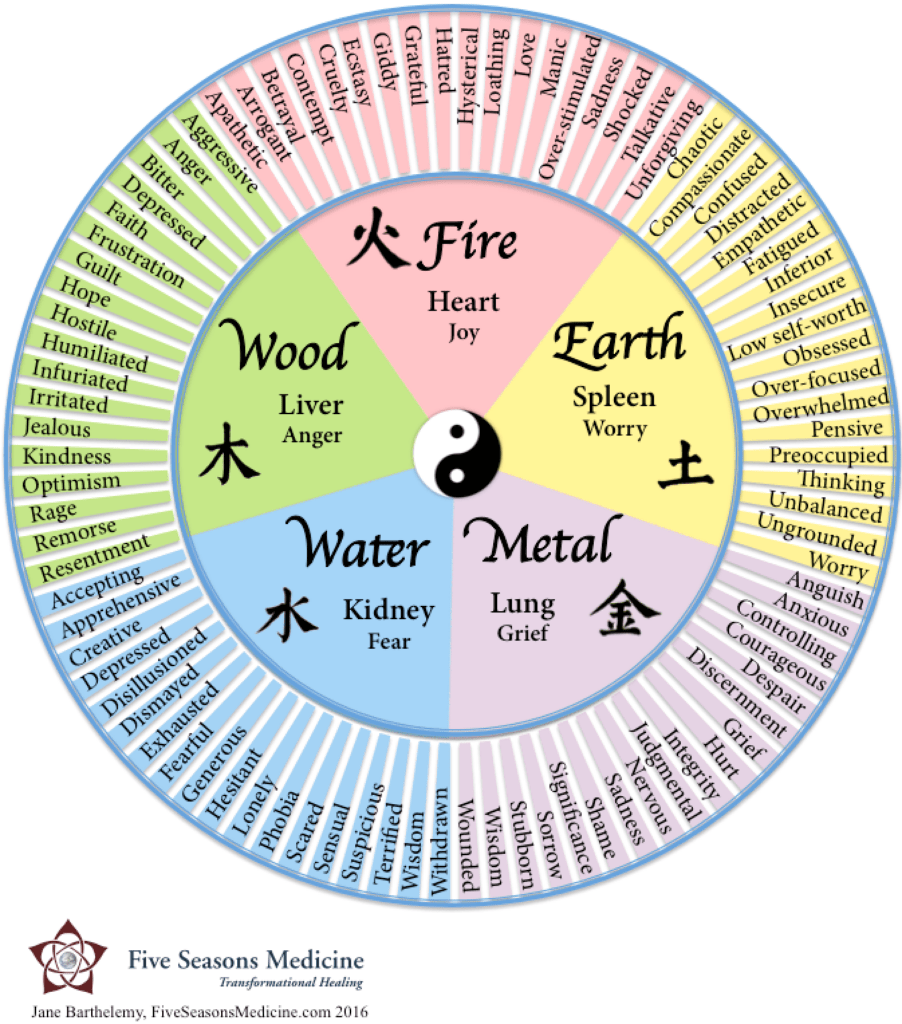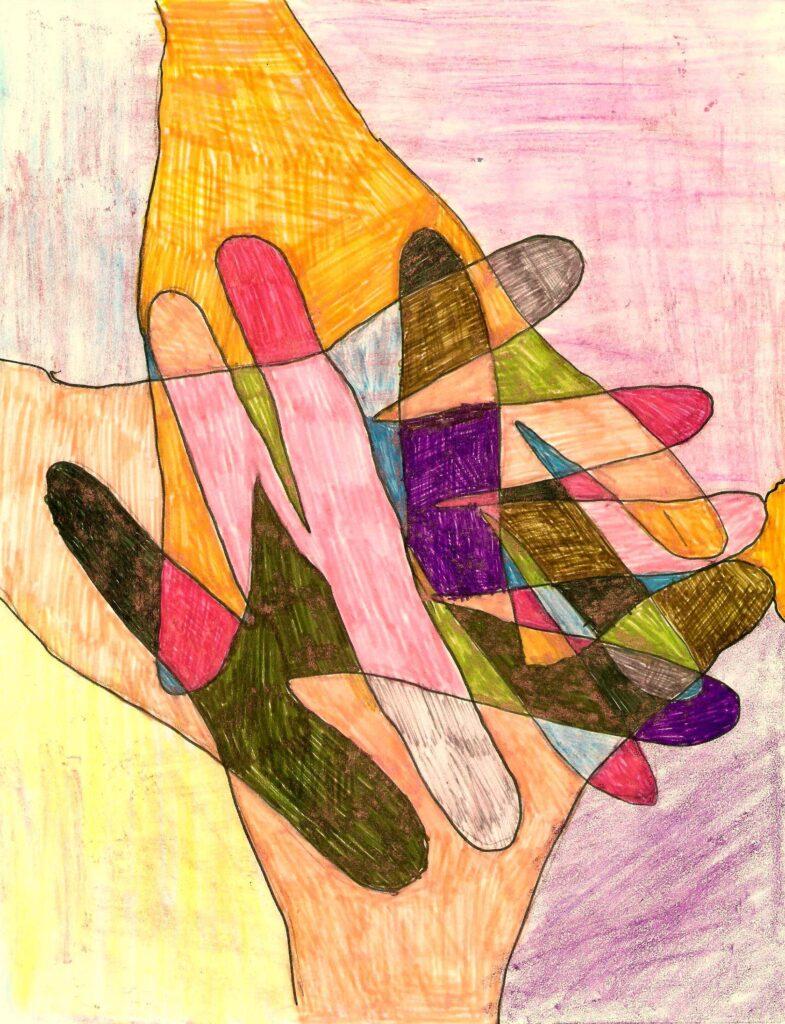
Successful people have a high emotional IQ. The ability to read one’s own emotions and those of other people gives inner self-confidence and keen perception, two essential qualities for effective leadership. Emotional intelligence means you can look yourself straight in the mirror with total acceptance. It means harmonizing your feelings with those of other people without judgement. When you’re able to honestly read yourself and others in balance, you’re well on the way to becoming a leader in any area or walk of life.
But there’s a rub. Emotions exist in many layers and intensities. Some emotions arise from recent events and we are consciously aware of them (Ex: “I’m mad at Joey because he just crushed my tricycle with his wagon”). Other emotions are deeply engrained, complex, subconscious, hidden and compensated in unusual ways (Ex: “I fear all men because my father used to beat me and my sisters”). It is clear that conscious emotions from recent events are easier to recognize. Older, subconscious emotions are more difficult to read. These deeper emotions are particularly tricky to observe honestly by yourself. It may take practice or assistance from a loving person to see our own hidden rivers of fear, anger, and grief. However ancient Chinese medicine holds that these deep feelings are our greatest resource for healing. They are like a road map leading us to freedom and simplicity. Follow them, study them, heal them, and they’ll lead you to a happy life free of stress and trauma.
Most People Can’t Recognize Their Emotions
As a health practitioner and qigong teacher I notice most people are not able to identify their emotions. When I ask what’s up, they say: “I feel pretty good.” Or “I feel tired.” Or “kind of quiet”. But those are not specific emotions. In these cases intuition and kinesiology are very useful to discover what is ready to heal and cannot yet be expressed. However it would be infinitely helpful if they could pinpoint their emotions such as: “I feel ashamed and vulnerable.” Or “I feel irritable and enraged but I don’t know why.” Or “I feel a deep layer of optimism, and a bit ungrounded on the surface.” When you can precisely identify your feelings on the Wheel of Emotions below, they can be addressed and healed using the Chinese 5 Elements, Qigong movements, Acupuncture, Energy Medicine, and other therapies.
Recognizing your emotions honestly is a skill, an essential skill to learn and develop. When you have the ability to identify your deepest feelings, you can heal yourself of ANYTHING. Do you have the courage to take a look at your emotions straight on? When you have the skill to recognize and accept your deepest feelings, then your emotional IQ is very high indeed.
Are you ready to do an exercise?
The Four Steps to Developing Emotional IQ are:
1) Recognition 2) Acceptance, Self Love, Gratitude 3) Remove Your Masks 4) Ask for Support
Wheel of Emotions and the Chinese Five Elements.

Step 1: Recognition of Your Own Emotions – What’s Your Story?
Get a piece of paper and a pencil. Take a moment to sit quietly and ask yourself an internal question. What are you feeling today, right now in this moment? Can you identify your three primary emotions on the wheel above? Be honest. Be quiet and let the emotions reveal themselves. Give your emotions a number 1, 2, or 3, with 1 being the strongest. You may notice they’re in levels, superficial, or medium, or very deep. Then rate the intensity of each emotion from 1 to 10, a low intensity being 1 to a high intensity of 10. Write it down.
In ancient Chinese medicine, each of the Five Elements are associated with a primary meridian, an organ, and an emotion. Notice in what element your emotions reside in on the chart. Are they all related to Fire? Or Wood? Or Water? Or mixed? Write it down. Are they negative or positive? How much intensity or stress are they bringing to your life? Now write down what is your story. How did these emotions arise in your body-mind-spirit? How have these source events changed you and made you the person you are now? Do you feel the tenderness of your reactions in the past? Did you reject yourself or the situations in that time? Write all your answers down. It could be one sentence or an entire page. Whatever you feel.
Step 2: Acceptance, Self Love, and Gratitude
 Step 2: Acceptance, Self Love, and Gratitude – Now sitting quietly, feel into your bones. Say to yourself: “I love and accept myself exactly as I am. I accept my true self and my unique destiny as a human being. I let go of my old self in total surrender. I release and give away my old self in order to be empty and allow my new self to reveal itself and to fill me. I honor myself as a sacred human being. I have a right and a purpose to live in this world. I release any old un-serving emotions and contracts and strongly desire to be honest to my true self. I offer gratitude for all my experiences and thank every moment in my path that has led me to this moment. I forgive the past completely with love and gratitude. I open my arms to the present, and to my future, whatever it may hold.” Then move on to Step 3.
Step 2: Acceptance, Self Love, and Gratitude – Now sitting quietly, feel into your bones. Say to yourself: “I love and accept myself exactly as I am. I accept my true self and my unique destiny as a human being. I let go of my old self in total surrender. I release and give away my old self in order to be empty and allow my new self to reveal itself and to fill me. I honor myself as a sacred human being. I have a right and a purpose to live in this world. I release any old un-serving emotions and contracts and strongly desire to be honest to my true self. I offer gratitude for all my experiences and thank every moment in my path that has led me to this moment. I forgive the past completely with love and gratitude. I open my arms to the present, and to my future, whatever it may hold.” Then move on to Step 3.
Step 3: Remove Your Masks
 Remove Your Masks – When you’re sure you want to step into to the light, into a new life, gather your courage and determination. Are you ready? Now see yourself walking out of the old, and into your new way of living. Release your old personality with tenderness and compassion, in order to explore your new path. Leave behind any nostalgia or grief about the past. Don’t rush out into the new, but rather quietly allow it to reveal itself to you. Accept all uncertainty. If you’re not sure what your new life looks like, immerse yourself intimately in Nature and wait for clarity. Meditate and tune into your deepest quiet. Get a piece of paper. On the left side write down the qualities of your old personality. On the right side write the qualities of your new self. Work slowly, thoughtfully, meditate and surrender until you find a bit of clarity. When you’re ready, tear the page in half. Wad up the old personality on the left and throw it away. Whew! Now move to Step 4.
Remove Your Masks – When you’re sure you want to step into to the light, into a new life, gather your courage and determination. Are you ready? Now see yourself walking out of the old, and into your new way of living. Release your old personality with tenderness and compassion, in order to explore your new path. Leave behind any nostalgia or grief about the past. Don’t rush out into the new, but rather quietly allow it to reveal itself to you. Accept all uncertainty. If you’re not sure what your new life looks like, immerse yourself intimately in Nature and wait for clarity. Meditate and tune into your deepest quiet. Get a piece of paper. On the left side write down the qualities of your old personality. On the right side write the qualities of your new self. Work slowly, thoughtfully, meditate and surrender until you find a bit of clarity. When you’re ready, tear the page in half. Wad up the old personality on the left and throw it away. Whew! Now move to Step 4.

Step 4: Ask for Support
No one can heal alone. We don’t live in a vacuum. Everyone needs a helping hand in times of transition. Sometimes our deep, dark, and twisted parts can be difficult to see, and unsettling to release. Find an experienced medical practitioner, therapist, or trusted friend to share your journey. Regular meetings with a reliable counselor can help you see the truth and offer encouragement, assisting you to release the old and stabilize in your new way of being. Suggested emotion-body-mind therapies to consider are:
- Psychiatry
- Qigong
- Yoga
- Meditation
- Hypnotherapy
- Energy Medicine
- Acupuncture
- Craniosacral therapy
Developing your Emotional IQ is a life-long journey that never ends. You can do this 4-Step exercise over and over your whole life. Call it a game! I hope it makes you happy and healthy.
How will you know when you’ve achieved a high Emotional IQ?
Well, you’ll be a strong person, able to look fear straight in the eye without flinching. You’ll be able to read your deepest emotions and those of others without reaction or judgement. You’ll have a flexible, thoughtful approach to life. You will become a reliable support for others. You’ll be happier. You may sleep better. Who knows? You may even become wise!
“Knowing yourself is the beginning of all wisdom.”
Aristotle, Greek Physician, 4th century BC


